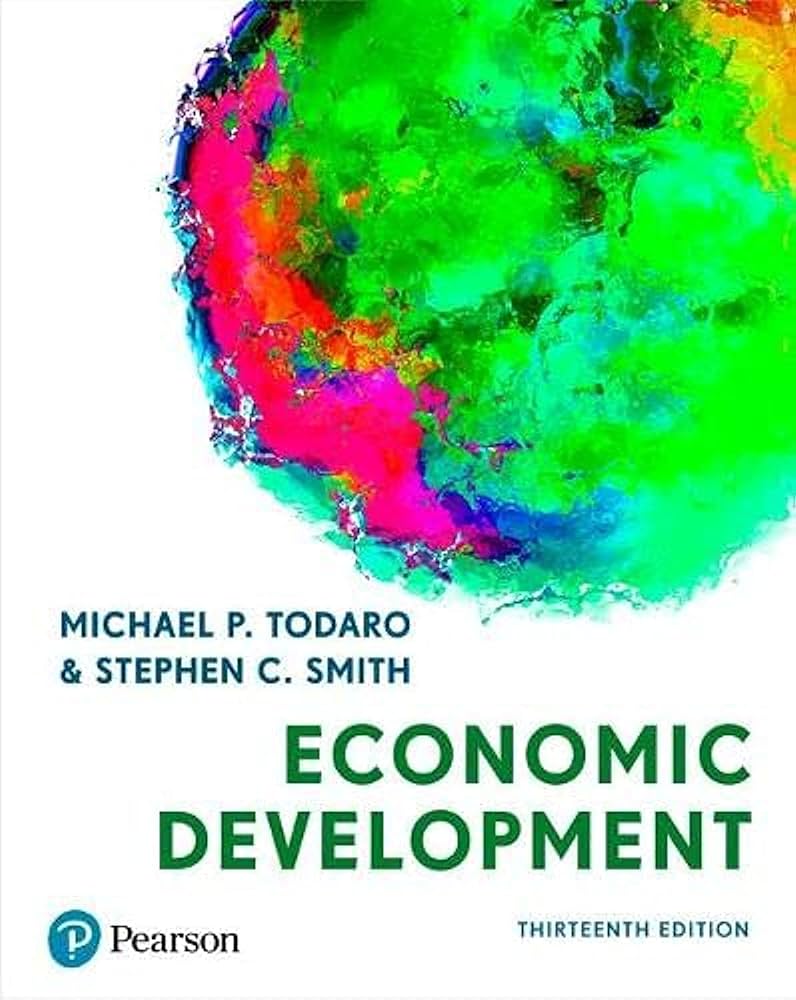Economic Development: Understanding, Drivers, and Implications

In the grand tapestry of global progress, economic development stands as a cornerstone, weaving together threads of prosperity, innovation, and social advancement. It’s a complex phenomenon, shaped by myriad factors ranging from governmental policies to societal norms, technological advancements to cultural shifts. In this extensive exploration, we embark on a journey to unravel the intricate dynamics of economic development, understanding its essence, drivers, and implications for societies worldwide.
Defining Economic Development:
Economic development transcends mere economic growth; it encapsulates a holistic progression encompassing improvements in living standards, infrastructure, education, healthcare, and environmental sustainability. It’s not solely about boosting GDP figures but fostering inclusive growth that uplifts the quality of life for all segments of society. Amartya Sen’s concept of development as “freedom” resonates deeply here, emphasizing the expansion of individuals’ capabilities to lead lives they value.
Key Drivers of Economic Development:
- Investment in Human Capital: Education and healthcare are pivotal, empowering individuals with knowledge, skills, and good health, enabling them to contribute effectively to economic activities and innovation.
- Infrastructure Development: Robust infrastructure, including transportation networks, energy systems, and digital connectivity, lays the foundation for economic growth by facilitating trade, investment, and the diffusion of technology.
- Innovation and Technological Progress: Innovation serves as a catalyst for economic transformation, driving productivity gains, fostering new industries, and enhancing competitiveness on the global stage.
- Sound Governance and Institutions: Transparent, accountable governance and well-functioning institutions are essential for creating an enabling environment for business, ensuring the rule of law, and safeguarding property rights.
- Macroeconomic Stability: Stable macroeconomic conditions, characterized by low inflation, prudent fiscal management, and a resilient financial sector, foster investor confidence and support sustainable growth.
- Trade and Globalization: Integration into the global economy through trade and investment opens up opportunities for specialization, access to new markets, and the transfer of knowledge and technology.
- Social Inclusivity: Economic development must be inclusive, addressing disparities in income, wealth, and opportunities across different social groups to foster social cohesion and reduce poverty.
Challenges and Complexities:
Despite its transformative potential, achieving sustainable economic development is fraught with challenges and complexities:
- Environmental Sustainability: Balancing economic growth with environmental conservation is imperative to mitigate climate change, preserve natural resources, and ensure intergenerational equity.
- Inequality and Social Exclusion: Rising income inequality poses a significant threat to social cohesion and economic stability, necessitating targeted policies to enhance access to education, healthcare, and economic opportunities for marginalized groups.
- Technological Disruption: While technological advancements drive economic progress, they also disrupt traditional industries, exacerbating job displacement and widening skill gaps, requiring proactive measures to reskill and upskill the workforce.
- Geopolitical Uncertainty: Geopolitical tensions, trade disputes, and global pandemics can derail economic development efforts, underscoring the importance of resilience and diversification strategies.
- Debt Burdens: Excessive debt accumulation, particularly in developing economies, can impede long-term growth prospects, highlighting the need for prudent fiscal management and debt sustainability.
The Road Ahead:
Navigating the complexities of economic development requires a multifaceted approach that prioritizes sustainability, inclusivity, and resilience:
- Investment in Education and Skills Development: Equipping individuals with the knowledge and skills needed for the jobs of the future is essential to foster innovation and competitiveness.
- Promotion of Entrepreneurship and Innovation: Creating an enabling environment for entrepreneurship and innovation, characterized by access to finance, supportive regulatory frameworks, and robust intellectual property rights, can unleash creative potential and drive economic dynamism.
- Sustainable Infrastructure Development: Embracing sustainable infrastructure practices, including renewable energy, green transportation, and smart cities, can foster economic growth while mitigating environmental risks.
- Enhanced Global Cooperation: Strengthening international cooperation and multilateralism is crucial to address transnational challenges such as climate change, pandemics, and trade imbalances, fostering a more equitable and prosperous global order.
- Social Safety Nets and Inclusive Policies: Implementing social safety nets, including universal healthcare, education subsidies, and targeted welfare programs, can mitigate the adverse effects of economic shocks and promote social inclusivity.
In conclusion, economic development is a multifaceted journey, characterized by progress, challenges, and opportunities. By embracing a holistic approach that prioritizes sustainability, inclusivity, and innovation, societies can chart a path towards prosperity and well-being for present and future generations. As we navigate the complexities of the 21st century, let us forge ahead with resolve, compassion, and a commitment to building a brighter tomorrow for all.
Want to dive deeper into the dynamics of economic development? Check out “Economic Development” by Todaro and Smith.
Economic Development, the leading textbook in this field, provides your students with a complete and balanced introduction to the requisite theory, driving policy issues, and latest research. Todaro and Smith take a policy-oriented approach, presenting economic theory in the context of critical policy debates and country-specific case studies, to show how theory relates to the problems and prospects of developing countries.
Whether you’re a student looking to expand your understanding or an educator seeking comprehensive teaching resources, Economic Development offers invaluable insights into the complexities of economic growth and societal progress. Get your copy today and embark on a journey to unravel the intricacies of global development.
Frequently Asked Questions (FAQ) on Economic Development
What is economic development?
Economic development refers to the sustained, concerted actions of policymakers and communities that promote the standard of living and economic health of a specific area. It involves improvements in a variety of indicators such as GDP per capita, life expectancy, literacy rates, and poverty levels.
How does economic development differ from economic growth?
Economic growth typically refers to an increase in a country’s output of goods and services over time, often measured by changes in Gross Domestic Product (GDP). Economic development, on the other hand, encompasses a broader range of factors, including improvements in quality of life, social well-being, and environmental sustainability.
What are the key drivers of economic development?
Key drivers of economic development include investment in human capital (education and healthcare), infrastructure development, innovation and technological progress, sound governance and institutions, macroeconomic stability, trade and globalization, and social inclusivity.
Why is economic development important?
Economic development is crucial for improving the standard of living and quality of life for people in a society. It creates opportunities for employment, increases incomes, reduces poverty, enhances access to education and healthcare, and fosters social stability and cohesion.
What are the challenges to achieving economic development?
Challenges to economic development include environmental sustainability concerns, rising income inequality, technological disruption, geopolitical uncertainty, and debt burdens, among others. These challenges require careful policy consideration and concerted efforts to address effectively.
How can countries promote economic development?
Countries can promote economic development through a combination of policies and initiatives aimed at fostering innovation, investing in infrastructure and human capital, promoting entrepreneurship, ensuring good governance and institutional quality, fostering international cooperation, and implementing inclusive social policies.
What role does the private sector play in economic development?
The private sector plays a crucial role in economic development as an engine of growth, innovation, and job creation. It drives investment, fosters entrepreneurship, and promotes the efficient allocation of resources through market mechanisms. Public-private partnerships are often instrumental in addressing development challenges.
How can individuals contribute to economic development?
Individuals can contribute to economic development by pursuing education and skills development, engaging in entrepreneurial activities, advocating for good governance and social inclusivity, and supporting sustainable consumption and production practices. Active citizenship and community engagement are essential for driving positive change.
What is the relationship between economic development and sustainable development?
Economic development and sustainable development are closely intertwined, with sustainable development emphasizing the need to meet the needs of the present without compromising the ability of future generations to meet their own needs. Economic development that is socially inclusive, environmentally sustainable, and economically viable contributes to the achievement of sustainable development goals.
How can technology contribute to economic development?
Technology can contribute to economic development by driving productivity gains, fostering innovation, creating new industries and job opportunities, improving access to information and services, and enhancing connectivity and efficiency across sectors. Embracing digital transformation and investing in research and development are key strategies for leveraging technology for development purposes.
What role do government policies play in promoting economic development?
Government policies play a critical role in promoting economic development by creating an enabling environment for business growth, investment, and innovation. This includes fiscal policies (taxation, government spending), monetary policies (interest rates, money supply), regulatory frameworks, trade policies, and investment incentives. Effective governance, transparency, and accountability are essential for the success of these policies.
How does education contribute to economic development?
Education is a fundamental driver of economic development as it equips individuals with the knowledge, skills, and capabilities necessary to participate in and contribute to the economy. A well-educated workforce enhances productivity, fosters innovation, attracts investment, and promotes social mobility. Investments in education, from early childhood to higher education and vocational training, yield long-term dividends for economic growth and development.
What is the role of infrastructure in economic development?
Infrastructure, including transportation networks, energy systems, telecommunications, and water and sanitation facilities, is essential for facilitating economic activities, connecting markets, and enabling trade and investment. Well-developed infrastructure reduces transaction costs, enhances productivity, and attracts private sector investment. Sustainable infrastructure development is crucial for promoting economic growth while minimizing environmental impacts.
How does globalization impact economic development?
Globalization, characterized by increased interconnectedness and integration of economies through trade, investment, and technology, has both positive and negative implications for economic development. On one hand, globalization expands markets, fosters innovation, and facilitates technology transfer, driving economic growth. On the other hand, it can exacerbate income inequality, lead to job displacement, and expose economies to external shocks. Managing the challenges of globalization while harnessing its benefits is key to promoting inclusive and sustainable development.
What are some examples of successful economic development initiatives?
Examples of successful economic development initiatives include the East Asian “Tiger” economies (such as South Korea, Singapore, and Taiwan) that achieved rapid industrialization and economic growth through export-oriented policies, investment in education and infrastructure, and proactive government intervention. Scandinavian countries like Norway and Sweden are also cited for their high levels of human development, social welfare systems, and innovation-driven economies. Each case underscores the importance of tailored strategies that leverage a country’s unique strengths and resources.
How can developing countries accelerate their economic development?
Developing countries can accelerate their economic development by prioritizing investments in human capital, infrastructure, and innovation; improving governance and institutional quality; promoting inclusive growth strategies that address poverty and inequality; fostering regional and international cooperation; and leveraging technology and digitalization to leapfrog development challenges. International assistance, partnerships, and knowledge-sharing can also play a crucial role in supporting developing countries’ development efforts.
What are the long-term benefits of sustainable economic development?
Sustainable economic development yields a range of long-term benefits, including improved environmental quality, enhanced social cohesion, reduced poverty and inequality, increased resilience to external shocks, and greater economic prosperity over time. By integrating environmental, social, and economic objectives, sustainable development ensures that future generations can thrive in a healthy and prosperous world.
What role do small and medium-sized enterprises (SMEs) play in economic development?
Small and medium-sized enterprises (SMEs) play a crucial role in economic development as engines of innovation, job creation, and economic diversification. SMEs often account for a significant portion of employment and GDP in many economies, particularly in developing countries. They contribute to economic resilience by fostering entrepreneurship, promoting competition, and enhancing productivity. Supporting SMEs through access to finance, technical assistance, and market access can unlock their full potential to drive inclusive and sustainable economic growth.
How does access to finance impact economic development?
Access to finance is essential for economic development as it enables individuals and businesses to invest in productive activities, such as education, entrepreneurship, and infrastructure. Financial inclusion, ensuring that all segments of society have access to financial services, is crucial for reducing poverty, promoting entrepreneurship, and fostering economic empowerment. Innovative financial products and services, including microfinance, mobile banking, and digital payments, can expand access to finance and stimulate economic activity, particularly in underserved communities.
What are the implications of demographic trends for economic development?
Demographic trends, including population growth, aging populations, urbanization, and migration, have significant implications for economic development. While rapid population growth can strain resources and infrastructure, a youthful population can also present opportunities for economic dynamism and innovation. Aging populations pose challenges related to healthcare costs, labor force participation, and pension sustainability, necessitating policy responses to promote healthy aging and support intergenerational equity. Urbanization can drive economic growth by concentrating economic activities and fostering agglomeration effects, but it also requires investments in urban infrastructure, housing, and environmental sustainability. Managing demographic transitions effectively is critical for achieving sustainable and inclusive economic development.
How does natural resource management impact economic development?
Natural resource management plays a critical role in economic development, particularly for countries rich in natural resources such as oil, gas, minerals, and forests. While natural resources can provide significant revenue streams and export earnings, their exploitation must be managed sustainably to avoid resource depletion, environmental degradation, and social conflicts. Effective natural resource governance, including transparent revenue management, environmental regulation, and community engagement, is essential for ensuring that resource wealth contributes to long-term economic development and poverty reduction.
What are the risks of over-reliance on specific industries for economic development?
Over-reliance on specific industries, such as extractive industries or tourism, can pose risks to economic development by making economies vulnerable to external shocks, commodity price fluctuations, and market downturns. This phenomenon, known as the “resource curse” or “Dutch disease,” can hinder economic diversification, innovation, and long-term growth prospects. Therefore, promoting economic resilience through diversification, value-added production, and investment in human capital and innovation is crucial for mitigating the risks associated with sectoral dependencies.
How can countries measure progress in economic development?
Countries measure progress in economic development using a variety of indicators, including GDP per capita, poverty rates, unemployment rates, income distribution, human development index (HDI), environmental sustainability indicators, and subjective well-being measures. Composite indices, such as the United Nations’ Sustainable Development Goals (SDGs) and the World Bank’s Ease of Doing Business Index, provide comprehensive assessments of countries’ economic, social, and environmental performance. Monitoring progress across multiple dimensions enables policymakers to track trends, identify priorities, and evaluate the effectiveness of development strategies over time.
What are the ethical considerations in economic development?
Ethical considerations in economic development revolve around issues of equity, justice, sustainability, and human rights. Development policies and interventions should prioritize the needs and rights of marginalized and vulnerable populations, ensure equitable distribution of benefits, respect cultural diversity, and uphold environmental integrity. Ethical frameworks, such as the capability approach, social justice principles, and human rights frameworks, provide normative guidance for addressing ethical dilemmas and promoting inclusive and sustainable development outcomes.
How can citizens engage in shaping economic development policies?
Citizens can engage in shaping economic development policies through various channels, including participatory decision-making processes, community organizing, advocacy campaigns, and public consultations. Civil society organizations, grassroots movements, academia, and the private sector play important roles in influencing policy debates, holding governments accountable, and promoting citizen empowerment. Access to information, transparency, and accountability are essential for fostering meaningful citizen participation in shaping economic development agendas that reflect diverse perspectives and priorities.
Thank you for reading! If you enjoyed this blog post and would like to receive more content like this, subscribe to our newsletter for updates and exclusive offers.
Feel free to share your thoughts and experiences in the comments section below. We look forward to hearing from you!
Disclaimer:
The views and opinions expressed in this blog post are those of the authors and do not necessarily reflect the official policy or position of any agency or organization.


